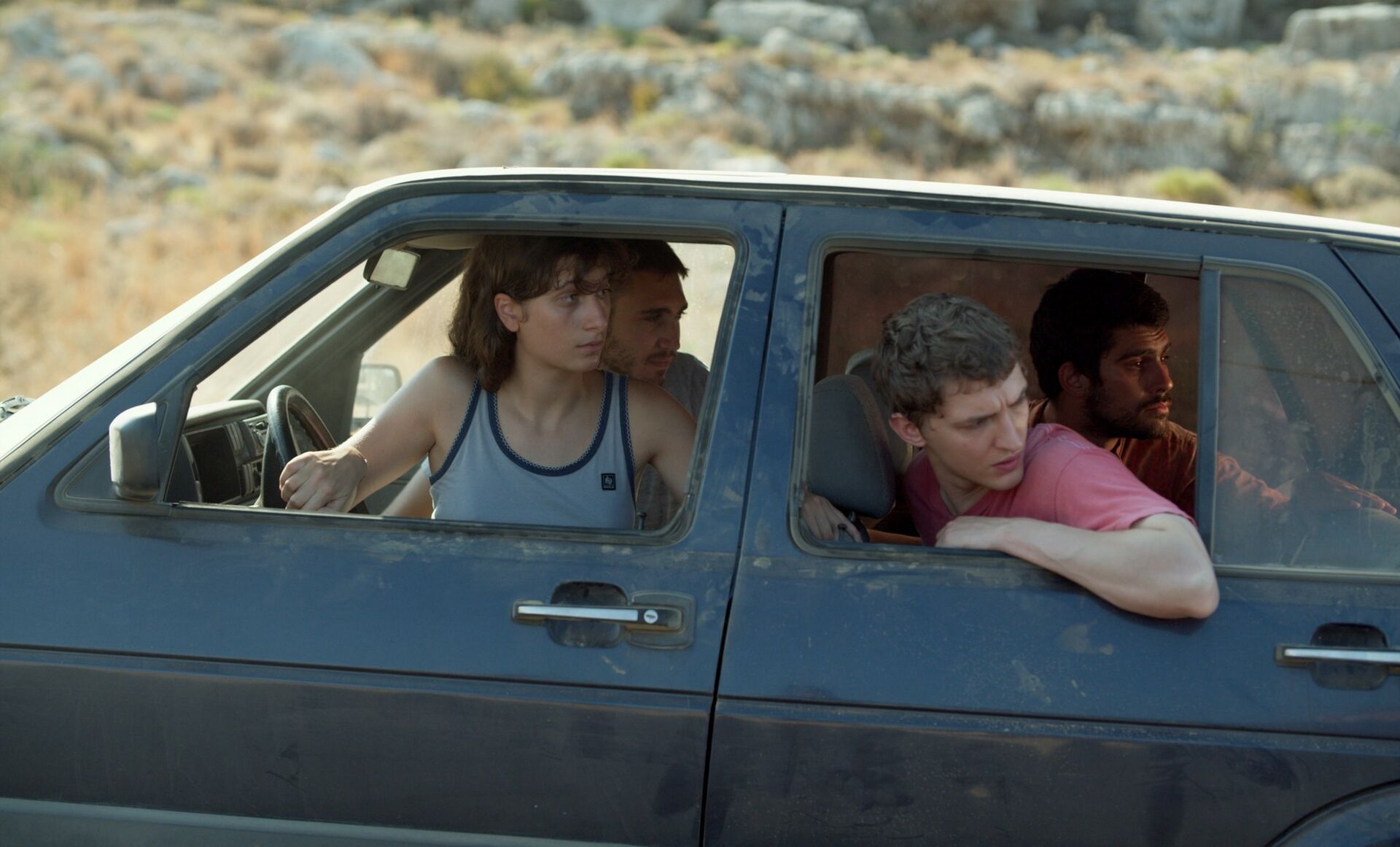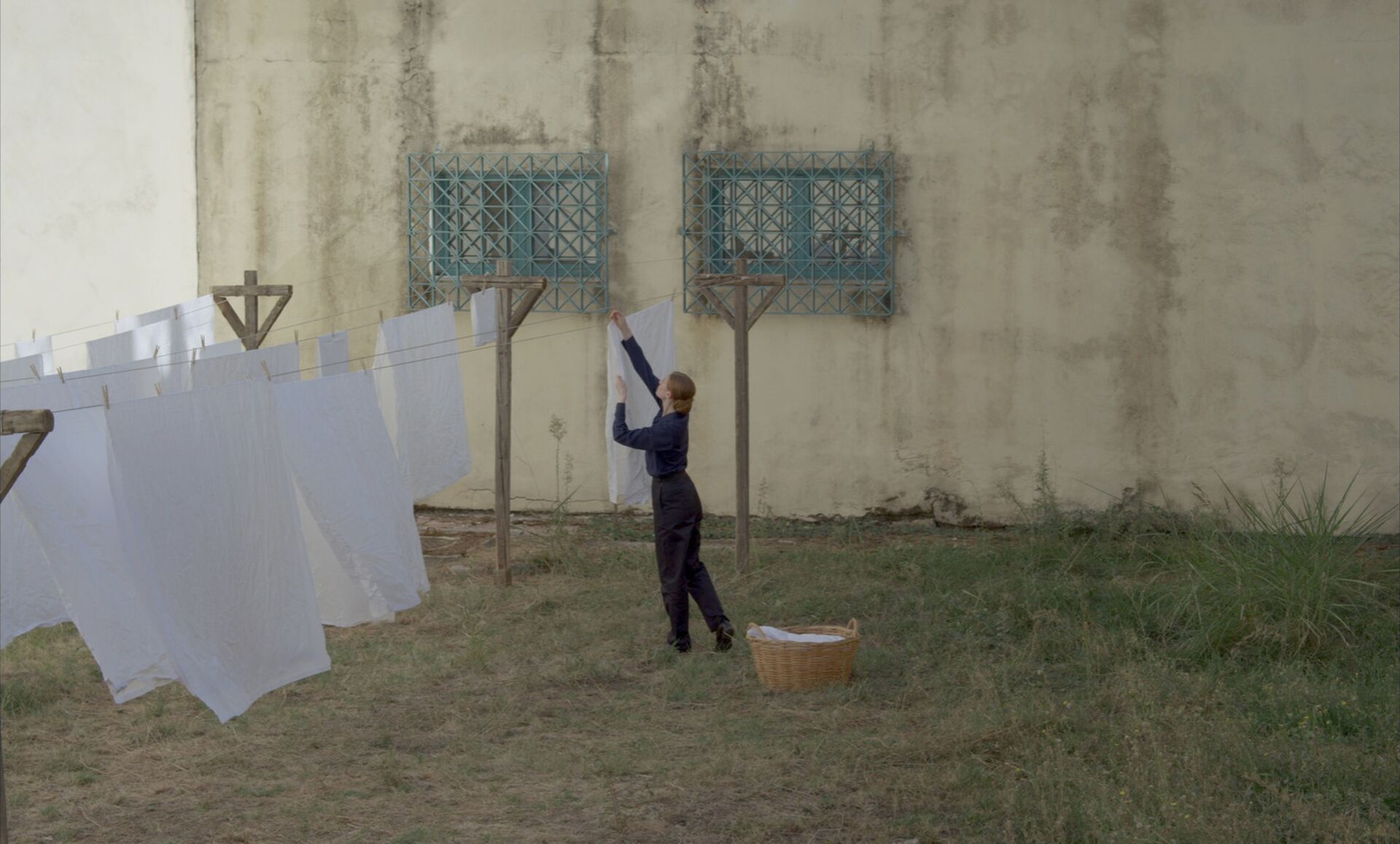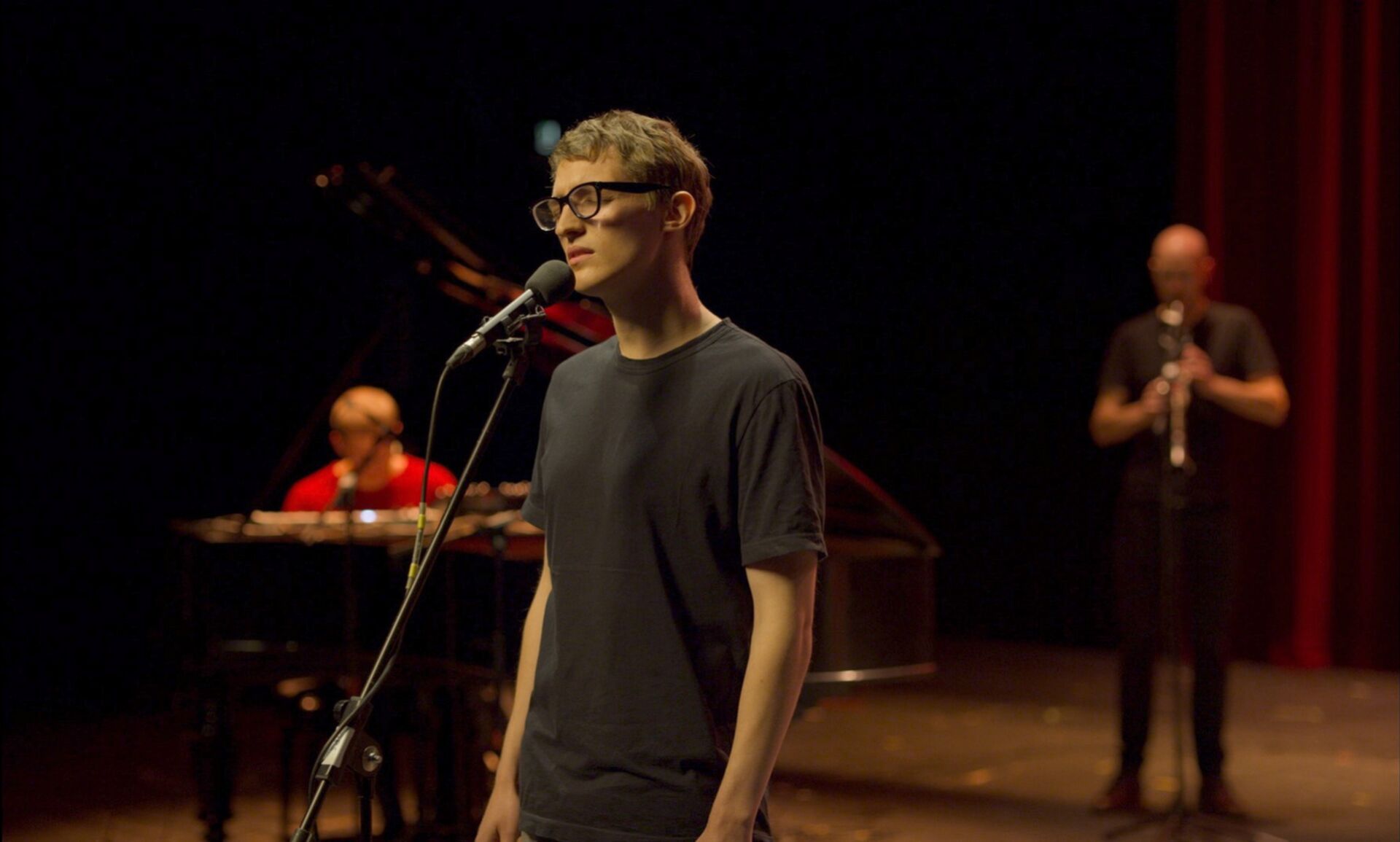Freely inspired by the myth of Oedipus. Abandoned at birth in the Greek mountains on a stormy night, Jon is taken in and adopted, without having known his father or mother. As a young man, he meets Iro, a warden in the prison where he is incarcerated after a deadly tragic accident. She seems to seek out his presence, takes care of him, records music for him. Jon’s eyesight begins to fail… From then on, for every loss he suffers, he will gain something in return. Thus, in spite of going blind, he will live his life more fully than ever.
The myth of Oedipus is the core of this masterful piece of elliptical storytelling in which every detail, no matter how small, becomes a sign – or not. This is a film that transports us from the mountains and beaches of Greece to the lakes of Berlin, and from sometime in the 1980s to the present day. In between, there is one date that can be ascertained: 2006 (featuring football and two decisive minutes for Italy). A newborn baby boy is rescued from a storm one night. Paramedic Elias and his wife take him in, name him Jon, and raise him. As a young man, Jon is attacked and commits manslaughter. The victim is none other than ... During his incarceration, Jon and a female prison officer named Iro become a couple. The tape recorder is playing baroque music: the playlist includes Monteverdi, Bach, Pergolesi. The aesthetics of this music develop into the film’s informing principle, reflecting events in a lucidly enigmatic and concretely abstract way that revels in its own austerity. In Angela Schanelec’s baroque-postmodern cinema, formulas from the doctrines of the affections and figures apply. An addictive intellectual-sensual challenge that allows us to blindly see.




